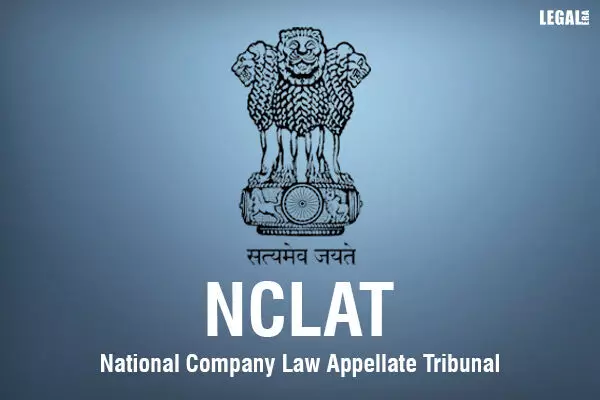- Home
- News
- Articles+
- Aerospace
- Agriculture
- Alternate Dispute Resolution
- Banking and Finance
- Bankruptcy
- Book Review
- Bribery & Corruption
- Commercial Litigation
- Competition Law
- Conference Reports
- Consumer Products
- Contract
- Corporate Governance
- Corporate Law
- Covid-19
- Cryptocurrency
- Cybersecurity
- Data Protection
- Defence
- Digital Economy
- E-commerce
- Employment Law
- Energy and Natural Resources
- Entertainment and Sports Law
- Environmental Law
- FDI
- Food and Beverage
- Health Care
- IBC Diaries
- Insurance Law
- Intellectual Property
- International Law
- Know the Law
- Labour Laws
- Litigation
- Litigation Funding
- Manufacturing
- Mergers & Acquisitions
- NFTs
- Privacy
- Private Equity
- Project Finance
- Real Estate
- Risk and Compliance
- Technology Media and Telecom
- Tributes
- Zoom In
- Take On Board
- In Focus
- Law & Policy and Regulation
- IP & Tech Era
- Viewpoint
- Arbitration & Mediation
- Tax
- Student Corner
- AI
- ESG
- Gaming
- Inclusion & Diversity
- Law Firms
- In-House
- Rankings
- E-Magazine
- Legal Era TV
- Events
- News
- Articles
- Aerospace
- Agriculture
- Alternate Dispute Resolution
- Banking and Finance
- Bankruptcy
- Book Review
- Bribery & Corruption
- Commercial Litigation
- Competition Law
- Conference Reports
- Consumer Products
- Contract
- Corporate Governance
- Corporate Law
- Covid-19
- Cryptocurrency
- Cybersecurity
- Data Protection
- Defence
- Digital Economy
- E-commerce
- Employment Law
- Energy and Natural Resources
- Entertainment and Sports Law
- Environmental Law
- FDI
- Food and Beverage
- Health Care
- IBC Diaries
- Insurance Law
- Intellectual Property
- International Law
- Know the Law
- Labour Laws
- Litigation
- Litigation Funding
- Manufacturing
- Mergers & Acquisitions
- NFTs
- Privacy
- Private Equity
- Project Finance
- Real Estate
- Risk and Compliance
- Technology Media and Telecom
- Tributes
- Zoom In
- Take On Board
- In Focus
- Law & Policy and Regulation
- IP & Tech Era
- Viewpoint
- Arbitration & Mediation
- Tax
- Student Corner
- AI
- ESG
- Gaming
- Inclusion & Diversity
- Law Firms
- In-House
- Rankings
- E-Magazine
- Legal Era TV
- Events
NCLAT rules on corporate debtor's objection on petition under Section 9 of IBC

NCLAT rules on corporate debtor's objection on petition under Section 9 of IBC
Upholds the decision of the Adjudication Authority and dismisses the appeal
The Delhi bench of the National Company Law Appellate Tribunal (NCLAT) has held that the only question to be looked at in the Section 9 petition under the Insolvency and Bankruptcy Code (IBC), 2016 is whether the objection raised by the corporate debtor opposing the claim of the operational creditor is not a moonshine defence.
Krishna Hi-Tech Infrastructure Pvt. Ltd. (operational creditor) was awarded a work contract by Bengal Shelter Housing Development Ltd (corporate debtor). But after the completion of work, when payments were not received by the operational creditor, in July 2019, it issued a demand notice under Section 8 of IBC to the corporate debtor.
Thereafter, in September 2022, it filed a petition under Section 9 of IBC, seeking initiation of the Corporate Insolvency Resolution Process (CIRP) against the corporate debtor.
However, the Adjudicating Authority (AA) rejected the Section 9 petition. He observed that the dispute existed between the two entities much before the demand notice was sent by the operational creditor. The corporate debtor raised disputes through emails regarding deficiency and slow progress in work, and defective materials. But the defences were not spurious, frivolous, or vexatious.
The operational creditor then filed an appeal before NCLAT against the order of the AA.
While adjudicating the appeal, the bench comprising Justice Ashok Bhushan (chairperson), Dr Alok Srivastava (judicial member) and Barun Mitra (technical member) observed that the contracts provided a mechanism for contractual disputes arising between the parties during the contract period.
The dispute between the parties was not supposed to be decided, examined, and adjudicated in IBC proceedings. The only question to be looked at in the petition was whether the objection raised by the corporate debtor opposing the claim of the operational creditor was not a moonshine defence.
The tribunal observed that the issues raised in the emails sent by the corporate debtor to the operational creditor were not moonshine defence. The issues regarding quality of work were raised much before the issuance of the Section 8 demand notice.
The operational creditor had contended that its emails were not considered by the AA, who had to examine the defence of the corporate debtor to find out if there was a pre-existing dispute. If he was satisfied, it was not necessary to refer to explanations given by the operational creditor.
Thus, the bench upheld the decision of the AA and dismissed the appeal.



